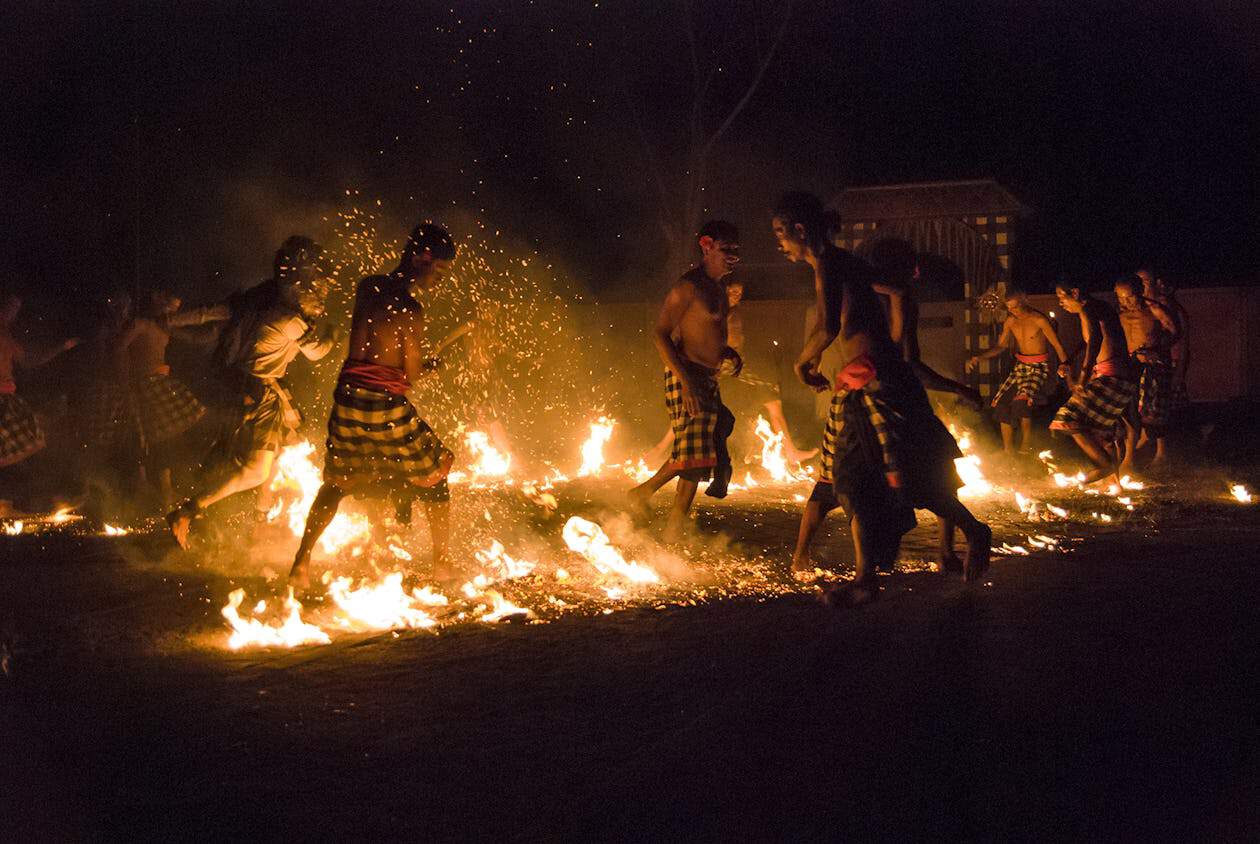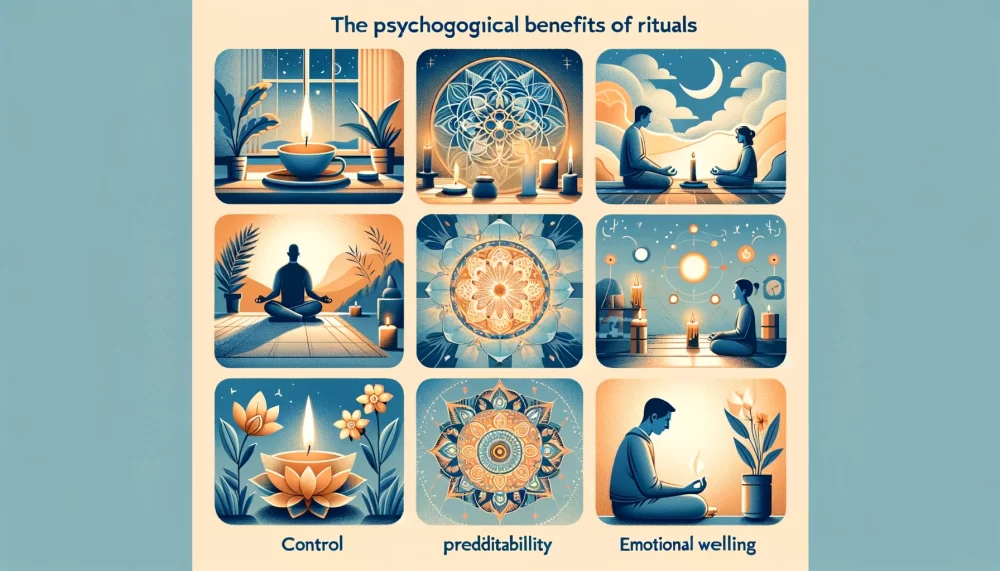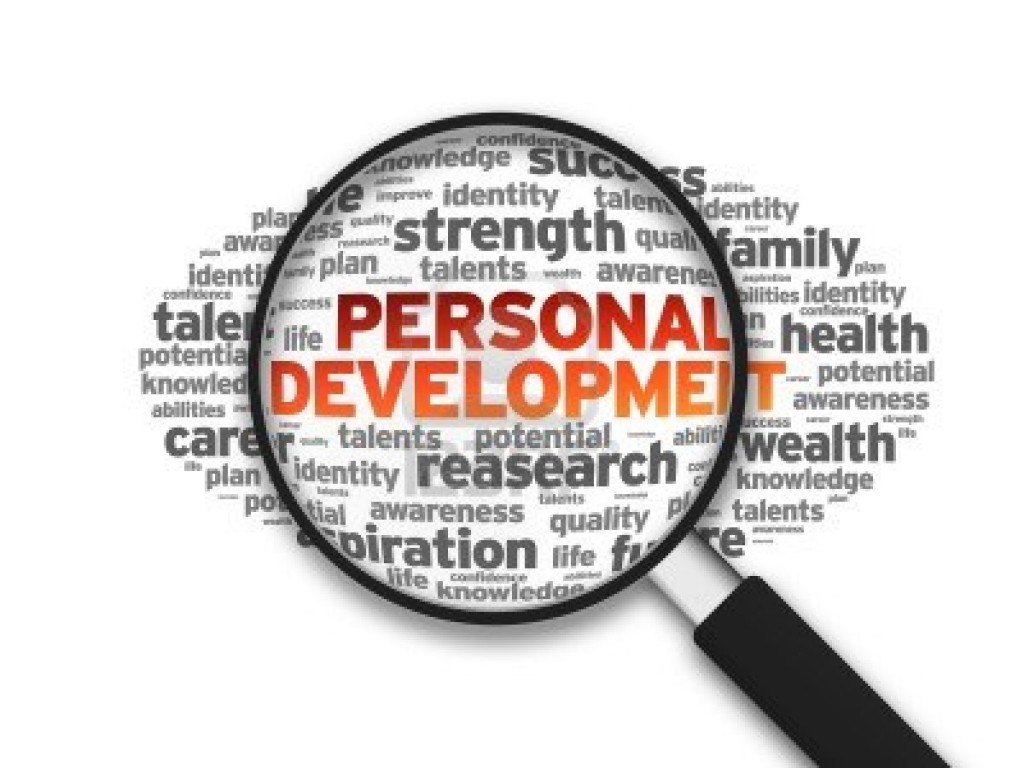The Shocking Significance of Rituals on Your Life

The significance of rituals have played a critical role in human life throughout history. From religious ceremonies to daily routines, rituals serve as a way to connect with ourselves, others, and the world around us. While some may view rituals as meaningless or outdated, research suggests that they can have a profound impact on our well-being.
One of the primary benefits of rituals is their ability to reduce anxiety and stress. When we engage in familiar, repetitive actions, we create a sense of predictability and control in our lives. This can be especially important during times of uncertainty or upheaval. Rituals can also serve as a way to mark significant life events, providing a sense of closure and helping us to process our emotions.
In addition to their psychological benefits, rituals can also help to create a sense of community and belonging. When we participate in shared rituals, we strengthen our connections with others and reinforce our shared values and beliefs. This can be particularly important in today’s fast-paced, individualistic society, where many people feel isolated and disconnected. By coming together to engage in shared rituals, we can build stronger, more supportive communities.
The Significance of Rituals
Historical Context of Rituals
The significance of rituals have played an integral part of human history since the beginning of time. They have played a significant role in shaping cultural, religious, and social practices. The historical context of rituals is essential to understanding their significance today.
In ancient times, rituals were used to communicate with the gods, seek protection, and ensure successful harvests. For example, the ancient Egyptians believed in the importance of preserving the bodies of the deceased through mummification, as they believed that the soul could only enter the afterlife if the body was preserved. This led to the development of elaborate burial rituals and the construction of grand tombs and pyramids.
Similarly, the ancient Greeks believed in the power of rituals to appease the gods and ensure their favor. They held festivals, such as the Olympic Games, to honor their deities and believed that participating in these rituals would bring good fortune.
In many cultures, rituals were also used to mark significant life events, such as birth, coming of age, marriage, and death. These rites of passage were often accompanied by specific rituals and ceremonies to mark the transition from one stage of life to another.
Today, the significance of rituals continue to play an important role in our lives. They provide a sense of structure, stability, and meaning in an ever-changing world. From religious ceremonies to personal rituals, they help us connect with our past, present, and future.
Cultural Significance of Rituals
Rituals have been an integral part of human culture for thousands of years, serving as a means of connecting with spiritual beliefs and cultural heritage. They play a vital role in shaping our identity and community, marking important milestones in our lives, and celebrating seasonal and religious festivities.
Identity and Community
Rituals serve as a way of defining and describing humans, helping to shape our identity and sense of belonging. They create a sense of unity and common purpose, bringing together individuals who share a common belief system or cultural heritage. For example, traditional wedding ceremonies often involve specific rituals and customs that are unique to a particular culture or religion, reinforcing the importance of family, community, and tradition.
Rites of Passage
Rituals are often used to mark important milestones in our lives, such as birth, coming of age, marriage, and death. These rites of passage serve as a way of acknowledging and celebrating these significant events, while also providing a sense of closure and transition. For example, in many cultures, the transition from childhood to adulthood is marked by specific rituals, such as a Bar or Bat Mitzvah in the Jewish tradition or a Quinceañera in Latin American cultures.
Seasonal and Religious Festivities
Rituals are also an important part of seasonal and religious festivities, serving as a way of celebrating and honoring cultural traditions and beliefs. These rituals often involve specific practices and customs, such as lighting candles during Hanukkah or fasting during Ramadan. They provide a sense of continuity and connection to the past, while also reinforcing the importance of community and shared values.
Overall, rituals play a crucial role in shaping our cultural heritage and identity, providing a sense of meaning and purpose in our lives. Whether marking important milestones or celebrating seasonal and religious festivities, these practices serve as a way of connecting with our spiritual beliefs and cultural traditions.
Psychological Aspects of Rituals

The significance of rituals rituals have been an integral part of human behavior since ancient times. They serve as a way to connect with oneself, others, and the divine. In recent years, psychologists have started studying the psychological aspects of rituals to understand their significance. Here are some cognitive functions and emotional benefits of rituals that have been identified:
Cognitive Functions
Rituals have been found to enhance cognitive functions such as attention, memory, and problem-solving. According to a study by Hobson et al. (2017), rituals help regulate performance goal states by providing a sense of structure and predictability. This, in turn, reduces cognitive load and frees up mental resources for other tasks. Additionally, rituals have been found to enhance creativity by providing a mental break and allowing for divergent thinking.
Emotional Benefits
Rituals have been found to regulate emotions by providing a sense of control and predictability. This can be especially helpful during times of stress and uncertainty. According to a review by Hobson et al. (2017), rituals help regulate emotions by providing a sense of structure and predictability. Additionally, rituals have been found to enhance social connection by providing a sense of belonging and shared experience.
In conclusion, rituals have a significant impact on our psychological well-being. They help enhance cognitive functions and regulate emotions, which can be especially helpful during times of stress and uncertainty. By incorporating rituals into our daily lives, we can reap the emotional and cognitive benefits they offer.
The Significance of Rituals in Modern Society
Rituals have been an integral part of human society since the beginning of time. They serve as a way to connect with our past, present, and future. In modern society, rituals continue to play a significant role, albeit with some changes and adaptations to fit into our fast-paced lives.
Preservation of Traditions
One of the significant functions of rituals in modern society is the preservation of traditions. Rituals help to maintain cultural heritage and pass it down from one generation to the next. For example, religious rituals, such as baptism, bar mitzvah, and communion, are essential in maintaining the religious traditions of a community. They help to reinforce the beliefs and values that have been passed down for centuries.
Adaptation and Evolution
In modern society, rituals have also undergone adaptation and evolution to meet the changing needs of people. For example, the traditional wedding ceremony has evolved to include new rituals such as the lighting of unity candles and the exchange of personalized vows. Similarly, the celebration of birthdays has evolved to include new rituals such as surprise parties and themed celebrations.
Moreover, modern society has also created new rituals that reflect the changing times. For example, the practice of mindfulness and meditation has become a ritual for many people seeking to reduce stress and improve their mental health.
In conclusion, significance of rituals continue to play a integral role in modern society, serving to preserve traditions and adapt to the changing needs of people. They provide a sense of continuity and connection with our past, present, and future, and help us to navigate the complexities of life.
The Significance of Rituals in Personal Growth

Rituals play an essential role in personal growth, helping individuals to develop new habits and achieve their goals. By creating a sense of structure and order, rituals can help you stay focused on your objectives and overcome obstacles that may arise along the way.
Habit Formation
One of the key benefits and the significance of rituals is that they can help you form new habits. By repeating the same actions over and over again, you can train your brain to associate these behaviors with positive outcomes. For example, if you want to develop a daily exercise routine, you might create a ritual of going for a run every morning. Over time, this ritual will become a habit, and you will find it easier to stick to your exercise goals.
Life Milestones
The significance of rituals can also be used to mark important milestones in your life. For example, you might create a ritual to celebrate your birthday each year, or to commemorate the anniversary of a loved one’s passing. These rituals can help you to process your emotions and find closure, allowing you to move forward with your life.
Rituals can be a powerful tool for personal growth, helping you to form new habits, achieve your goals, and mark significant milestones in your life. By incorporating rituals into your daily routine, you can create a sense of structure and order that will help you to stay focused and motivated, no matter what challenges you may face.
Rituals Across Different Religions
Rituals are an integral part of religious practices across the world. Different religions have their unique set of rituals that are performed to connect with the divine, offer prayers, and seek blessings. In this section, we will explore some of the most prominent religions and their rituals.
Christianity
Christianity is one of the most widely followed religions in the world. The religion has several denominations, and each has its unique set of rituals. The most common Christian rituals include baptism, communion, and confession. Baptism is a ritual that involves the immersion of a person in water to symbolize the washing away of sins and the beginning of a new life in Christ. Communion is a ritual that involves the consumption of bread and wine, symbolizing the body and blood of Christ. Confession is a ritual where a person confesses their sins to a priest and seeks forgiveness.
Islam
Islam is the second-largest religion in the world, with over 1.8 billion followers. The religion has five pillars, and each pillar has its unique set of rituals. The most important Islamic ritual is Salah, which involves the recitation of prayers five times a day. The other rituals include Zakat (giving alms to the poor), Sawm (fasting during the month of Ramadan), Hajj (pilgrimage to Mecca), and Shahada (declaration of faith).
Hinduism
Hinduism is one of the oldest religions in the world, with over a billion followers. The religion has several rituals that are performed to seek blessings from the gods and goddesses. The most common Hindu rituals include puja (worship), aarti (offering of light), and yagna (sacrifice). Puja involves the offering of flowers, fruits, and sweets to the deity, while aarti involves the offering of light to the deity. Yagna involves the sacrifice of animals or grains to seek blessings from the gods.
Buddhism
Buddhism is a religion that originated in ancient India and has over 500 million followers worldwide. The religion has several rituals that are performed to seek inner peace and enlightenment. The most common Buddhist rituals include meditation, chanting, and offering of incense. Meditation involves focusing the mind on a particular object or thought to achieve inner peace. Chanting involves the recitation of Buddhist scriptures, while the offering of incense symbolizes the purification of the mind and body.
In conclusion, rituals are an essential part of religious practices across the world. Different religions have their unique set of rituals that are performed to seek blessings, connect with the divine, and achieve inner peace. The rituals mentioned above are just a few examples and are by no means exhaustive.
Impact of Globalization on Rituals
Globalization has had a significant impact on the way we view and practice rituals. With the world becoming more interconnected, traditional cultural practices have started to adapt to global influences, reflecting the impact of globalization on diverse cultural practices.
One of the most significance of rituals and their impact on globalization, is the emergence of cultural fusion and hybridization. As people from different cultures come into contact with each other, they often borrow from each other’s traditions and incorporate them into their own rituals. This can lead to the creation of new rituals that are a blend of different cultural practices. For example, in some parts of the world, people celebrate Christmas by decorating palm trees instead of traditional Christmas trees, reflecting the blending of Christian and local cultural practices.
Another impact of globalization on the significance of rituals is the spread of religious practices across borders. With the advent of technology, people can now access religious teachings and practices from anywhere in the world. This has led to the spread of religious practices and rituals across borders, resulting in the globalization of religion. For example, yoga, which originated in India, has now become a global phenomenon, with millions of people practicing it all over the world.
Globalization has also led to the standardization of some rituals. With the spread of popular culture and media, certain rituals have become standardized across different cultures. For example, the celebration of Valentine’s Day has become a global phenomenon, with people all over the world celebrating it in a similar way.
Overall, the impact of globalization on rituals has been significant. While it has led to the blending of different cultural practices and the spread of religious practices across borders, it has also led to the standardization of some rituals.
Future of Rituals in the Digital Age
As technology continues to advance, it is inevitable that we will see an increase in the use of digital rituals. These rituals may take many forms, from virtual religious services to online meditation sessions. While some may argue that digital rituals lack the authenticity and connection of in-person rituals, they offer a range of benefits.
One of the main advantages of digital rituals is accessibility. With the rise of remote work and online communication, people are increasingly turning to digital solutions for their spiritual and mental health needs. Digital rituals allow individuals to participate in meaningful practices from anywhere in the world, regardless of their physical location or ability to travel.
Another benefit of digital rituals is the ability to customize and personalize the experience. With the help of technology, individuals can create their own unique rituals that are tailored to their specific needs and preferences. For example, a virtual meditation session can be customized with different music, sounds, and visuals to create a more immersive and personalized experience.
However, it is important to note that digital rituals also present some challenges. One of the main concerns is the potential for technology to further isolate individuals and disconnect them from their communities. While digital rituals can offer a sense of connection and belonging, they may also contribute to feelings of loneliness and disconnection.
Overall, the future of rituals in the digital age is both exciting and uncertain. As technology continues to evolve, it will be interesting to see how individuals and communities adapt and incorporate digital solutions into their spiritual practices.


